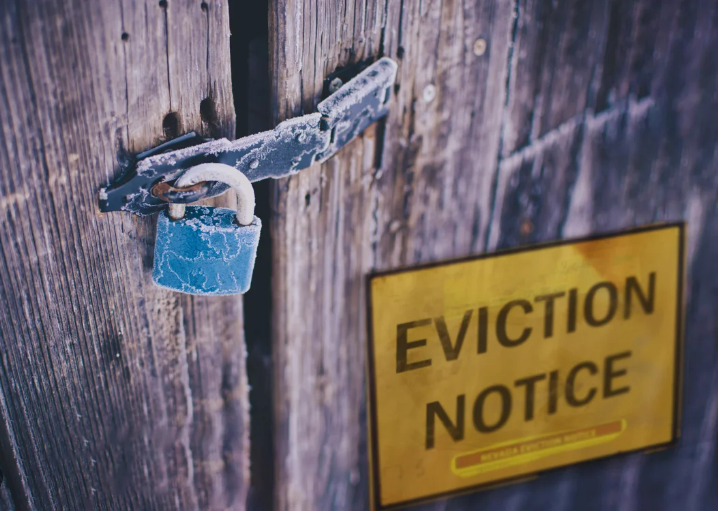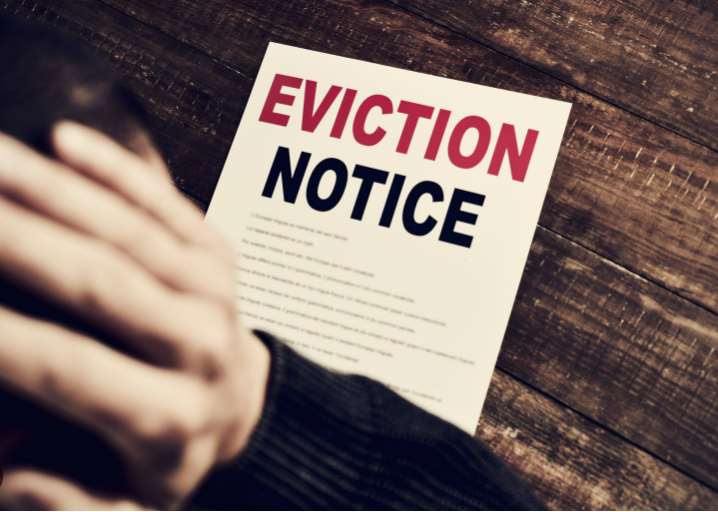What is Eviction?


Over the past year, landlords have filed nearly 1.1 million eviction cases in the 10 states and 34 cities monitored by the Eviction Lab. While the immediate concern with eviction is being legally removed from your home, you might also worry about its impact on your credit. The good news is that the eviction order itself doesn’t directly affect your credit score. However, the events leading up to the eviction could have potential credit consequences.
What is eviction?
An eviction occurs when a landlord obtains a court order to legally remove a tenant from a property. This typically happens when a tenant breaches the lease terms, such as failing to pay rent, but can also occur for other reasons like not meeting community health and safety standards or having unauthorized subletters or pets. Unfortunately, some landlords may fabricate reasons to evict tenants, which is why tenants have the right to contest evictions in court.
The Eviction Lab at Princeton University, which provides public access to eviction data, highlights that the highest rates of eviction filings are found in southern coastal states and the Washington D.C. metro area. The lab’s data also shows that non-white households experience eviction at significantly higher rates than predominantly white households, and women are evicted 16 percent more often than men.
What to do if you receive an eviction notice
When you receive an eviction notice, it indicates that legal action has been initiated, which could lead to a court-issued eviction order. Some eviction notices are curable, meaning you can take specific actions to resolve the issue and stay in your home. For instance, if you’re behind on rent, catching up on payments might allow you to keep your residence.
However, an incurable eviction notice, also known as an “unconditional quit notice,” requires you to vacate the property. This type of notice is typically issued after serious and repeated breaches of your rental agreement or more than two months of unpaid rent. Despite receiving this notice, you still have the right to contest the eviction in court. The procedures and rights vary by state and city, so it’s important to understand the local laws or consult with a tenant rights attorney for guidance.
What happens if you get evicted?
In court proceedings, you have the right to be represented by an attorney, and not having legal representation can put you at a significant disadvantage against the landlord. Fortunately, there are organizations, such as community legal services and local bar association-sponsored legal clinics, that offer assistance to tenants facing eviction.
If you lose your case, the judge will likely issue an eviction order requiring you to vacate the property promptly. Should you fail to comply with the eviction order, many jurisdictions permit law enforcement to enforce the judge’s decision. Therefore, it’s wise to begin searching for temporary housing as soon as you receive an eviction notice and are awaiting your court date.
Does eviction show up on your credit report?
While an eviction itself doesn’t show up on your credit report, it can indirectly impact your credit score if it results from unpaid rent. Landlords often hire collections agencies to recover unpaid rent, and this debt can then be reported to credit bureaus, affecting your credit score. If you have a cosigner or guarantor on your lease, the debt may also appear on their credit report.
A low credit score can have several consequences. It can make it more challenging to obtain loans or credit cards, and if you do qualify, the terms and interest rates may not be as favorable. Additionally, a low credit score can complicate the process of renting a new home.
Eviction orders are also recorded in public records and can be discovered by potential landlords through tenant screening services. Many landlords are reluctant to rent to individuals with a history of eviction.
Even if you haven’t faced eviction, it’s important to stay on top of your rent payments. Landlords may review your credit reports to check for any past payment issues. Maintaining a strong credit history will make you a more attractive candidate for future rentals.
Potential ways to keep an eviction off your credit report

To avoid having an eviction on your record, it’s best to prevent the eviction from happening in the first place. If you receive an eviction notice, you may still have the opportunity to resolve the issue before it escalates to court. For example, if the eviction is due to unpaid rent, catching up on payments could allow you to stay in your home. However, if late payments have already been reported, they will still affect your credit report.
If paying the outstanding rent isn’t possible, consider negotiating with your landlord about moving to a more affordable unit.
For other reasons for the eviction notice, such as having an unauthorized pet, addressing the issue directly with your landlord may help you avoid going to court. Working collaboratively with your landlord to resolve the problem is often the most effective way to prevent an eviction order.
How to remove an eviction from your record
If you believe your eviction was wrongful, you can seek legal recourse by taking the matter to court.
If your eviction is for a valid reason, like missed rent payments, you might be able to negotiate with your landlord to have your eviction record removed from tenant-screening reports by paying the full amount due. However, eviction orders can remain in public records for up to seven years. Although the eviction itself won’t appear on your credit report, it can still show up in background checks.
If your past-due rent has been sent to collections, settling your debt is a crucial step. Once the debt is settled, you might be able to negotiate with the collections agency to remove the account from your credit report, though this process is not tightly regulated. Generally, collection accounts stay on your credit report for seven years. Nonetheless, settling your debt is the best way to mitigate further damage to your credit history and score.
Eviction resources
The Consumer Financial Protection Bureau (CFPB) offers a range of resources on its website for renters concerned about current or potential evictions. The National Center for State Courts provides a map of local housing legal aid providers. Additionally, you can visit LawHelp.org or the Legal Services Corporation for further assistance, particularly if you suspect housing discrimination.
In Conclusion
An eviction itself won’t directly impact your credit, but if an eviction leads to a collection account, that will show up on your credit reports and negatively affect your credit score. To prevent this, it’s best to address issues with your landlord to avoid eviction. Fortunately, numerous legal resources are available to help renters. By understanding eviction and its potential impact on your credit, you can take proactive steps to prevent it or minimize its long-term effects on your financial situation.








